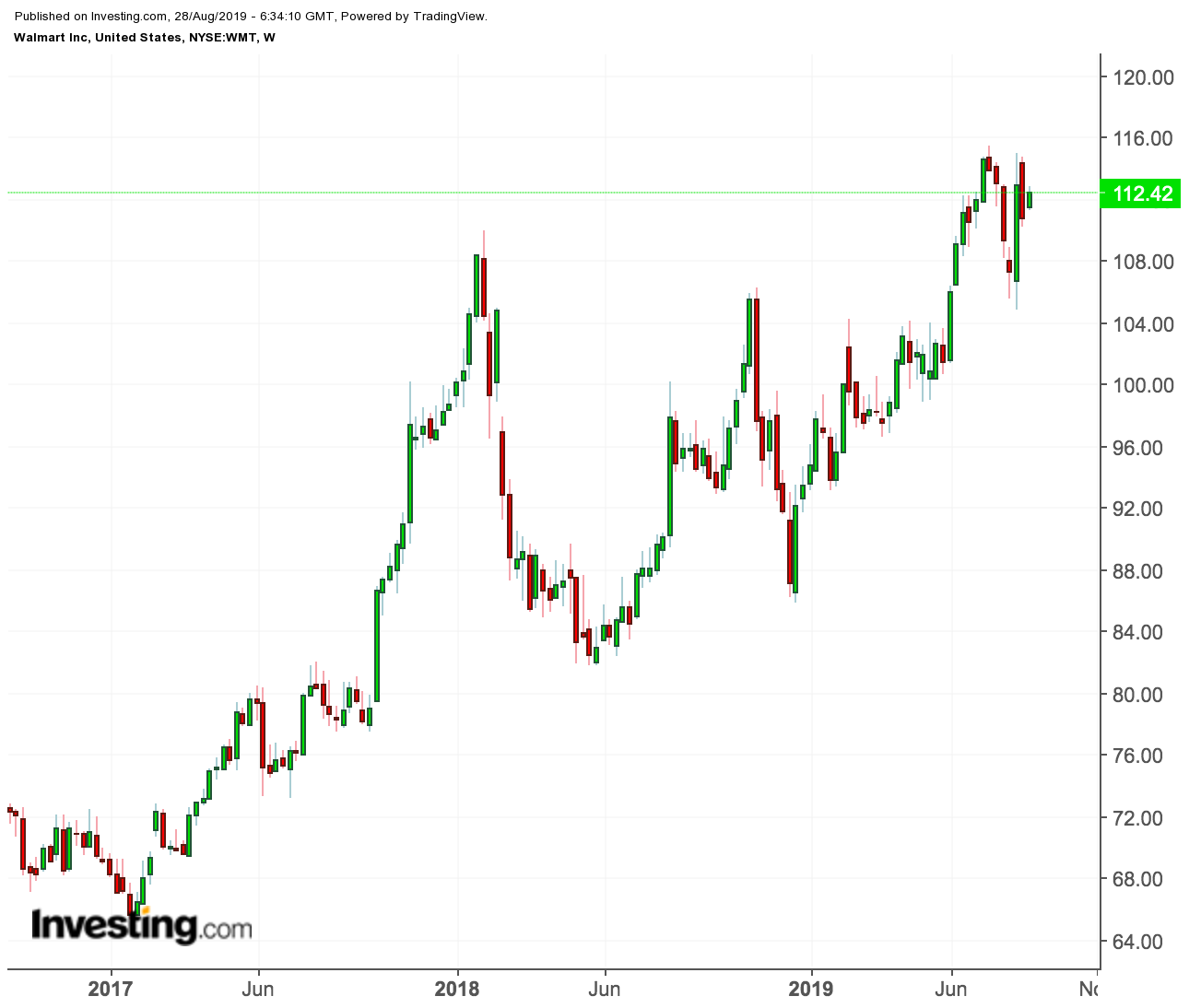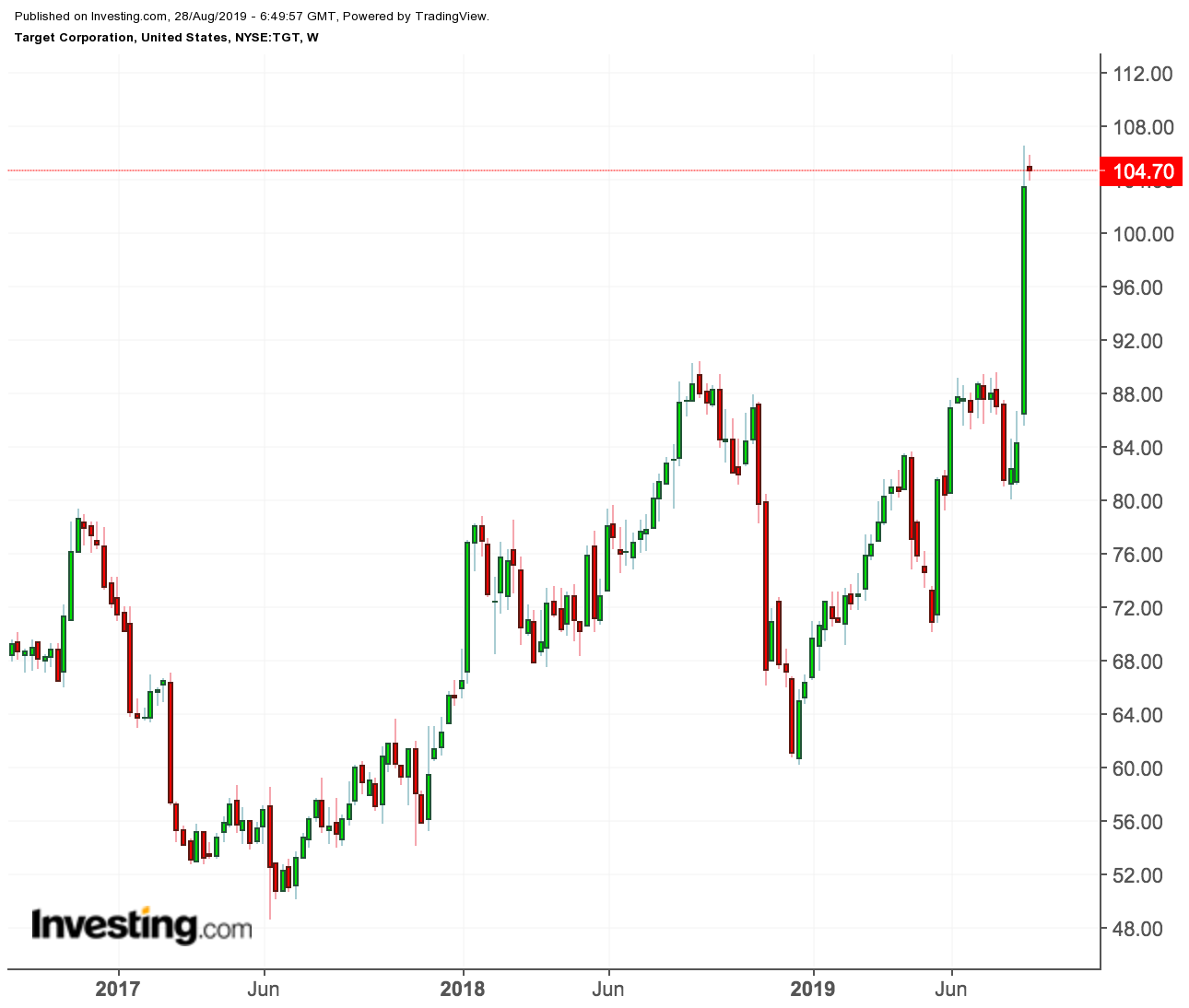When storms gather on the economic horizon, investors tend to move their funds from risky assets to so-called safe-havens — government bonds, utilities and consumer staples.
These types of assets are considered safe because they are able to generate reliable profits that offer a guaranteed stream of income in the form of dividends. That rush to safety has intensified this year, mainly due to the escalating trade war between the U.S. and China that, according to many analysts, has the potential to push the global economy into a recession.
If you’re seeking refuge in this uncertain economic environment, the shares of the two big-box retailers — Walmart Inc (NYSE:WMT) and Target Corporation (NYSE:TGT) — offer a good alternative.
1. Walmart
The biggest concern that should be addressed when picking a safe-haven stock is whether the company is capable of producing strong cash flows when the economy is suffering and consumers are limiting their spending.
On this metric, the world’s largest retailer, Walmart, fits the bill. Its large store network, massive power to squeeze its suppliers and its fast-improving online sales give it a safe haven status. The biggest evidence of this strength came this month when the retailer not only beat analysts’ expectations for its quarterly earnings, but also raised its full-year forecast. That suggests the retailer doesn’t see a big disruption in its earnings even if recession hits.

One factor that favors Walmart over others is its strong food-related sales. This makes it better insulated from the trade war than many competitors because food mostly comes from North America.
With that strong market position, what’s more important for dividend investors is the company’s ability to provide regular cash. Walmart has a great track-record on this front as well. Since declaring its first dividend in March 1974, Walmart has raised its payout every single year.
Going forward, there is still a lot of space for the retailer to continue rewarding its investors. In its fiscal year 2019, Walmart paid a $2.12 per share annual dividend out of its adjusted net income of $4.91 per share, keeping its payout ratio close to the ideal 40% mark. Trading at $112.42 at yesterday's close, Walmart shares have gained about 19% in the past 12 months.
2. Target
After judging Target on the same metrics we did Walmart, it’s not hard to conclude that this retailer, too, can withstand the economic downturn better than other competitors. In fact, shares of Target have proved a more lucrative trade when compared to Walmart this year — they've surged 58%, in the period, to close yesterday at $104.70. By comparison, the S&P 500 Index is up 14%.

In recent quarters, Target has been able to deliver a strong performance despite fears that the U.S.-China tit-for-tat tariffs could escalate retailers' costs and hurt sales. For the second-quarter, Target reported both sales and profit gains last week, mainly achieved by attracting customers with compelling products, convenience and competitive pricing.
The company also raised its full-year earnings guidance, projecting earnings of $5.90 to $6.20 a share, up from its previous range of $5.75 to $6.05 a share.
With that growth momentum continuing, income investors who bought Target stock are also earning higher payouts each year. The company has been disbursing steadily increasing dividends every year for the last 48 years, while maintaining a fairly conservative payout ratio of 32.27% vs the industry average of 41.95%. Distributing an annual dividend of $2.64 per share, for a yield of 2.5%, its net quarterly income would cover its $0.66 quarterly payout more than twice.
Bottom Line
There is no doubt that investing in stocks is risky and doesn’t fit well in a highly conservative investing strategy. But if you want to diversify your portfolio with some exposure to equities, then both Walmart and Target offer solid income potential and a good hedge should the economy slow or slip into recession.
